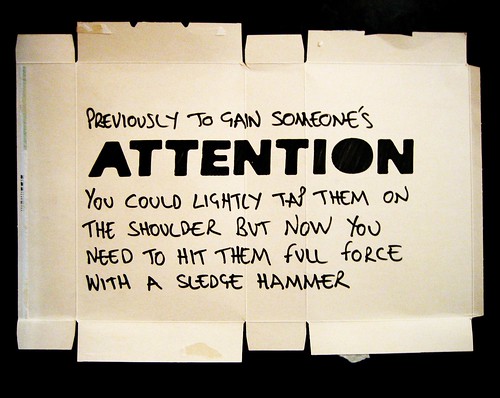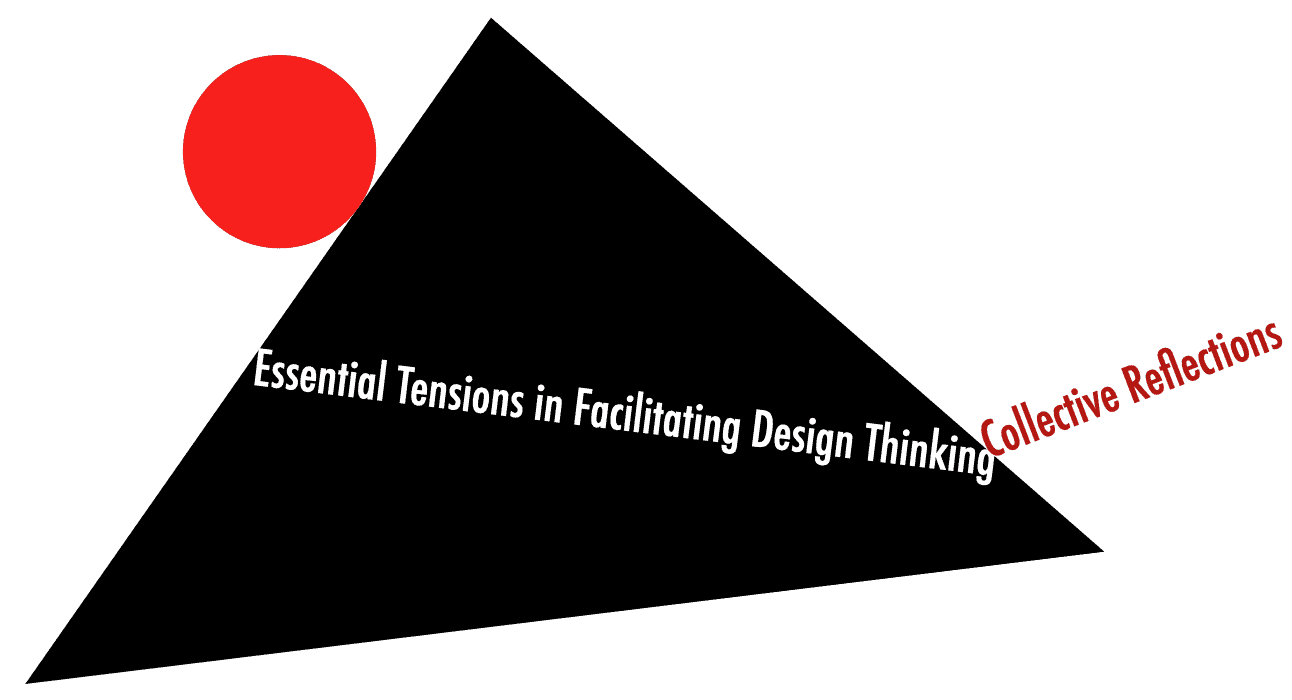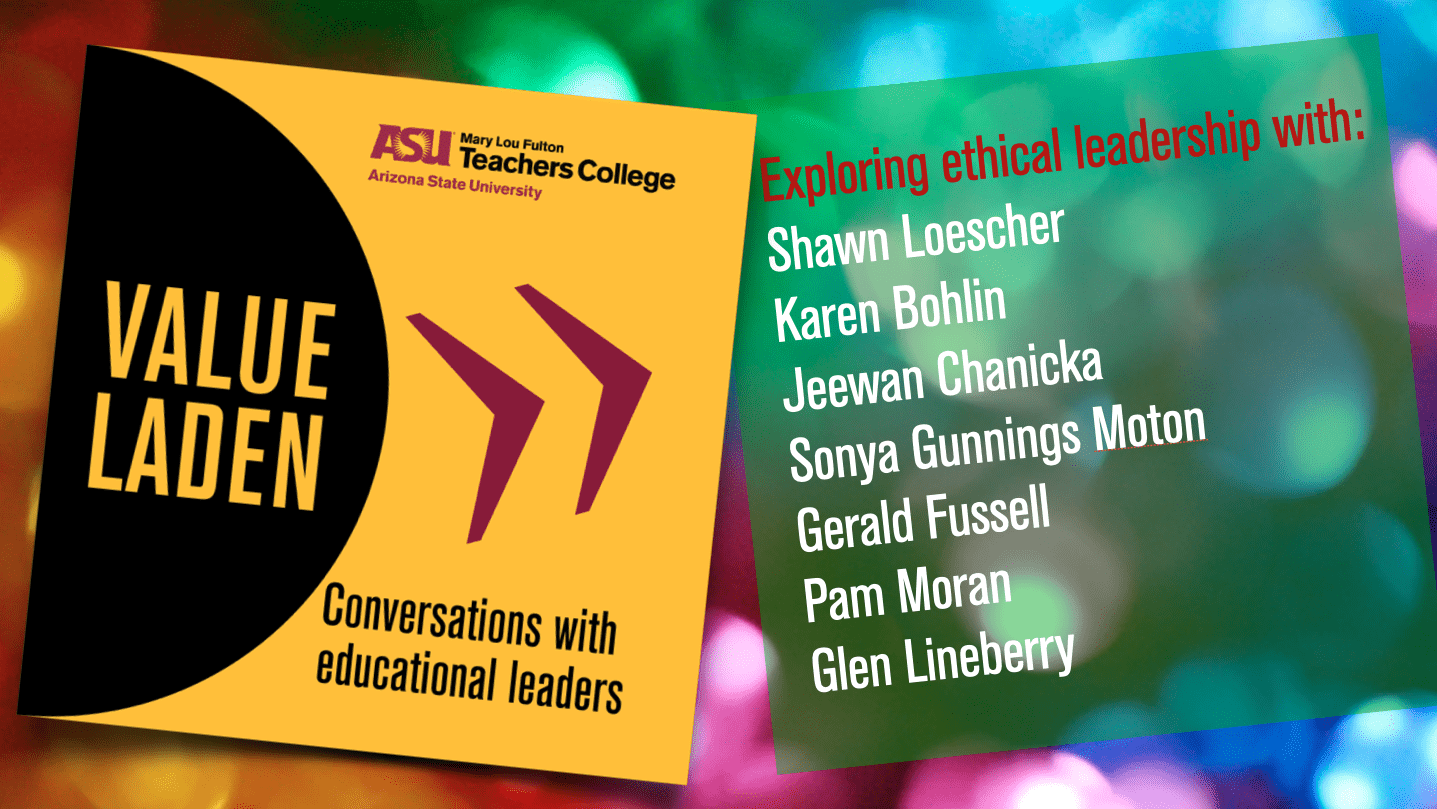Peter Hershock is an education specialist at the East-West Center in Honolulu and author of Buddhism in the Public Sphere. He was recently interviewed by Matt Bieber of The Wheat and Chaff. I found this interview fascinating, particularly the first half which spoke to the idea of education in the 21st century (something I have written and talked about quite a bit). Here are some excerpts from the interview. I recommend reading it in full.
Hershock starts by suggesting that we need a new frame for education because
We live in a world of predicaments, not problems. Predicaments occur when something happens that makes you aware of the fact that there’s a conflict among your own aims and interests. You can’t solve a predicament. You can only resolve it, and doing so requires greater clarity and commitment (both of which are connotations of the word “resolution”).
Moreover, the economic basis of our lives has moved into what he calls the “attention economy.” He suggests that:
It’s generally agreed that we’ve moved from a strongly material economy into the so-called “knowledge economy” or “information economy.” But if economics is deciding how to allocate scarce resources, it makes very little sense to talk about an information or knowledge economy. Information isn’t scarce; knowledge isn’t scarce. What is scarce is attention. The kind and quality of investment that people have, in terms of their consciousnesses—that’s really what we’re talking about. That’s what’s driving the global economy. [italics added.]
This new world requires something he calls “attention training,” suggesting that
… without the kind of attention training that goes along with being able to engage one another meaningfully, we’re just not going to be able to resolve the kinds of predicaments that we face in the world today. We’re not going to be good enough citizens to do it; we won’t be good enough politicians to do it.

Photo by alshepmcr
Hershock also argues for an education “that focuses on developing improvisational, responsive, appreciative, attentive capacities” as opposed to one that falls prey to “competence traps.” By this he means that
The competence trap is that you’ve got some end result that you know you want to get to. You’ve already predefined that, so it’s problem-solution. You know what’s going to count as a solution. And once you predefine your educational goals, you can certainly train or discipline students to arrive at them.
He follows this by arguing (and this goes, at least to me, to the heart of what he is saying)
But we live in a world of increasing unpredictability. One of the outcomes of having more complex patterns of interdependence is that complex systems are prone to behave in ways that are in principle unpredictable, un-anticipatable, but which after the fact make perfectly good sense. In a complex world, it’s very difficult to determine what competencies will be required down the line in order to be able to respond to the future needs of, say, the market or society.
The education system is saying, “We’re trying to prepare students to be competent to work in the markets as we now know them, to enter the labor force” and such. It’s a typical claim made on behalf of mass education. “We’re preparing this generation to enter the work force, to be competent in some way, even if it’s to be competent as citizens.”
Photo by R.DuranWe’re defining that in terms of our present understanding of what is needed. Unfortunately, the half-life of scientific knowledge changes is about 18 months – that’s the speed at which the cutting edge of scientific knowledge dulls. And if it’s knowledge in the stock market, that half-life is about 18 seconds. If you don’t act on a tip in 18 seconds, you’re behind the curve.
If we live in a world where there’s that kind of time-space compression, plus unpredictability, the idea that you predefine a set of educational goals for students to achieve, and see that as productive and successful education – well, I think it’s really shortsighted. What we need instead, I think, is skills that enable us to enter situations with the kinds of attentive capacity and responsive capability needed to improvise…
And we can train people to improvise. We can train them through concrete stuff, like musical improvisation, from which one can then generalize. But improvising is something we all do; we do it in just speaking. I mean, it’s what we’re doing in this interview; you’ve got some scripted sentences that you’re reading out to me, and maybe when we go down the line, you start to ask questions that aren’t scripted. But I’m speaking off the top of my head, and sure, maybe using some phrases that I’ve used in the past, but I’m not them putting together in a way that I planned out at all because I didn’t know the questions you were going to ask. This is improvisational, and I’m trying to figure out: What’s gonna be meaningful for you? How am I going to make sense to you? Am I doing a good job of it? Maybe not so good right now! But we’ll keep working at it and see whether or not the conversation starts to take off.
Photo by The original SimonB
That kind of ability, that ability to improvise with others is what we need to promote in working with students – shaping education in ways that are going to be productively aligned with developing capacities for and commitments to improvising. Because improvising isn’t easy; there’s a lot of risk involved in it. You don’t know where it’s going to go. You don’t even know what the measures of success are going to be. The measures of what’s qualitatively good and what’s worth continuing are the things that emerge out of the situation that you find yourself in.
In fact he suggests that we
Drop the idea of there being a destination at all. You’re not working for a goal. We’re not trying to get somewhere with this. There’s not a destination at which we’re aiming to arrive. The point is just to establish a certain direction and quality of action.” It’s orientation as opposed to goal.
The root of the word “curriculum” on which all of our formal educational systems are now based, the root meaning of the term is a circular racetrack for chariots. So the idea is you have a starting point and a stopping point, a defined racetrack that you go around… It’s a powerful idea that you can methodize instruction so that if you want to arrive at a certain level of competence—again we go back to that—in a given knowledge or skill domain, you can define how to arrive at that particular goal, and you can establish a timeframe for getting there. It will take you a year; it will take you three years; it will take you seven years to get your Ph.D. and then you’ll be there.
Photo by RamkarthikbloggerThat’s certainly one way to do education. The problem is that the world we live in requires us, I think, to respond without establishing those kinds of goals, because the contexts in which we’re acting are changing so much that the idea of a fixed goal is now no more plausible in terms of what we’re trying to accomplish than it is to say, “We already know what the market is going to need in terms of the job force, so we can train a generation of young people to get out of university in four years and be ready to go to the job market. They’ll have the skills and the knowledge that the market wants.”
We now know that we can’t do that…
What we need is a responsive capability that’s partly attention, that’s partly physical skill, that’s partly emotional demeanor, that’s partly intellectual capacity—we need to pull all those together. That’s why I resist the idea of goals. It’s really about establishing a direction as primary, as opposed to goals as primary.
Do read the complete interview.






@Dan McGuire Thanks for the comment. Well now that the library is the world, or the world is the library, issues of access change in interesting ways.
I like the idea of an attention economy, and I know my wife would, too. The economizing feature of this economy will be the records that are kept and the process for sharing those records. Libraries have been thought ledgers that allowed access to those who behaved well in the library and the systems that managed the libraries.
@Stephen Vassallo, Actually I would say yes. The more I think about it, the more important issues like motivation, self-directed learning becoming.
@ Justin M. Thanks for the Douglas Adams reference. I am am huge fan… for instance see this.
Speaking to your broader point, I would agree that we need to rethink what we mean by courses. I am not sure that we need to totally dump syllabi, objectives, assessments – but rather that we need to rethink them and align them with this new “non-racetrack” world we are entering into. Syllabi / assessments are not the problem per se, just how they are structured and what their goals are.
The sentence “The root of the word “curriculum” on which all of our formal educational systems are now based, the root meaning of the term is a circular racetrack for chariots.” This is true for so many reasons because essentially that’s where all of our courses are coming from…curriculum. The world today is more often than not, very unlike a racetrack. It’s more like a trip upon a spacecraft like the “heart of gold” from hitchhikers guide to the galaxy (sorry, it’s my summer read). You never know where you’re going to end up or what types of skills you are going to need to survive in this universe. The challenge therein lies with not being able then to create “traditional” courses with syllabi, objectives, assessments then doesn’t it? Curious to hear your thoughts…
So, we need to teach people to be self-regulating learners?